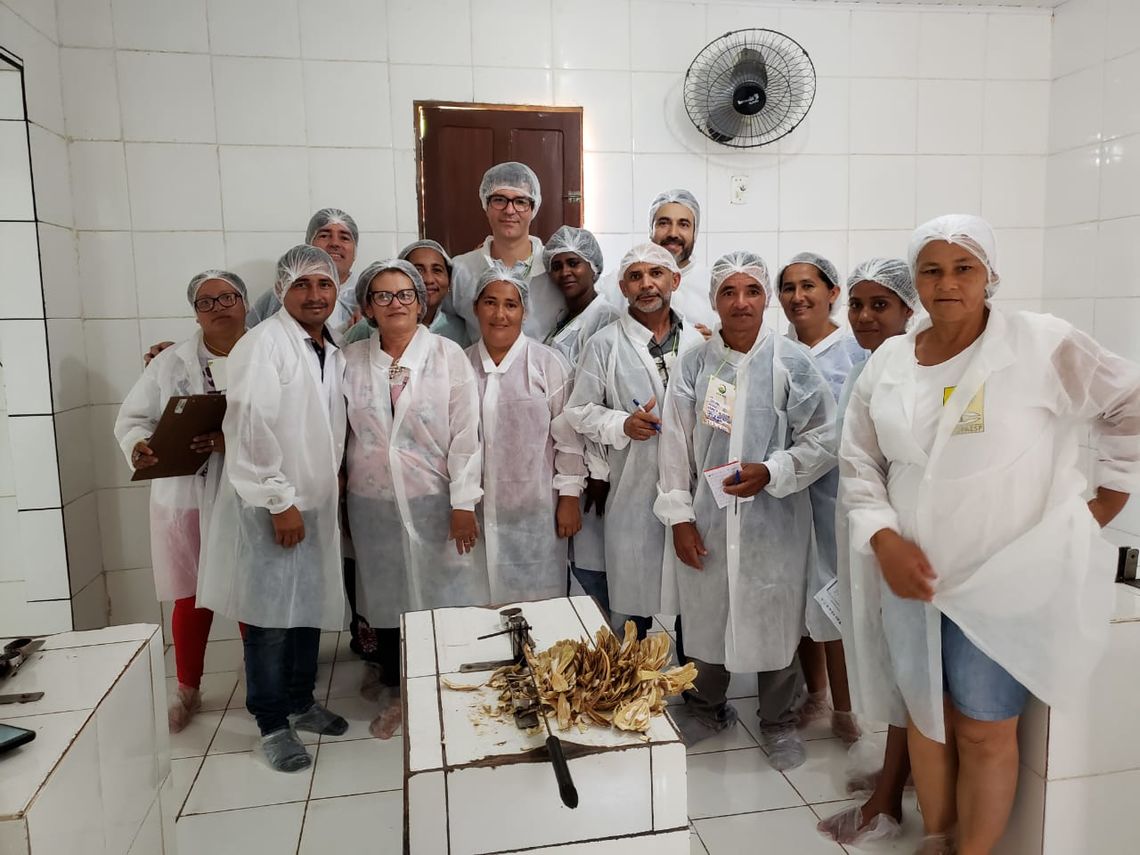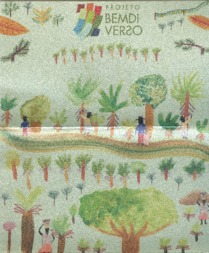Embrapa promotes course on Good Manufacturing Practices for Brazilian biodiversity products
Embrapa promotes course on Good Manufacturing Practices for Brazilian biodiversity products
Urban dwellers may not be familiar with some fruits from Brazilian biodiversity, such as hog plum, ouricury, jelly palm fruit, mountain soursop and babassu. The value aggregation and the commercial expansion of such products through the improvement of agroindustrialization processes comprise the focus of specialists from Embrapa Food Technology in the five "citizenship territories" (CTs) where the Bem Diverso Project takes place, a project developed in partnership between Embrapa and the United Nations Development Program (UNDP), with funds from the Global Environment Fund (GEF). The goal is that smallholders and natural resource extraction workers start to incorporate Good Manufacturing Practices (GMP) to conquer national and international markets, generating jobs, income and improved quality of life.
So far, over 100 farmers and agroindustry managers received the theoretical-practical training on Good Manufacturing Practices (GMPs) promoted by Embrapa Food Technology's team in Montes Claros - MG, Monte Santo - BA and Pedreiras - MA. In the 2020, this course is due to reach the island of Marajó - PA and Alto Acre - AC. The course is composed with a comprehensive methodology, aiming at collective knowledge-building. "Everything starts with the diagnosis of agroindustries in the region through interviews with the managers and technicians responsible in order to survey "attention points" in the categories organization, finances, technology, personnel and market. We move on to an audit of the agroindustry's operation and, after the course, with a follow-up about GMP requirements", explains Fénelon do Nascimento Neto, a researcher at Embrapa Food Technology.
One of the high points of the training takes place during the practical part as check-list of incompliances is applied to an agroindustry in the region, based on legal and technical criteria. Then, instead of the farmer or manager relying on an external consultant, they achieve autonomy by identifying the needs for improvement in the agroindustry and institute their own SOPs (Standard Operational Procedures) and Manuals of Good Manufacturing Practices. "Smallholders can thus improve management processes, based on their knowledge of local production techniques", states Sergio Cenci, a researcher from Embrapa Food Technology and manager of the Agroindustry component of the Bem Diverso Project.
During the months following the training there is a follow-up with Embrapa's team regarding the previously established GMP criteria. The data are all stored in a system developed by Embrapa, named Agrofonte, with different levels of access for technicians and decision-makers. For this system, it is also possible to share experiences and good practices, identifying the priority areas forinvestment. Such information should help public policy ensure the quality and the safety of production in individual and collective agroindustries.
Bem Diverso Project
Bem Diverso is a project that aims at contributing to the conservation of Brazilian biodiversity in multiple-use landscapes through the sustainable management of sociobiodiversity in agroforestry systems (AFSs), in order to ensure the lifestyles of traditional communities and family farmers, generating income and improving quality of life.
With this training on Good Manufacturing Practices (GMPs), the expectation is that natural resource extraction workers and family farmers start to incorporate safety and quality techniques in the processing of products from the Brazilian biodiversity, enabling them to conquer domestic and foreign markets. There is a vast market niche with consumers who value traditional products, with exotic flavors and functional potential, stemming from sustainable production and processing, in a far trade circle. "This is a 'seed' so that they become autonomous and lead their own businesses. This technical course is not just about Good Manufacturing Practices, but also adds knowledge about improved management processes in agroindustrialization", concludes Sergio Cenci, manager of the Agroindustry component of the Bem Diverso Project.
Translation: Mariana Medeiros
Aline Bastos (MTb 31.779/RJ)
Embrapa Food Technology
Press inquiries
agroindustria-de-alimentos.imprensa@embrapa.br
Phone number: +55 21 3988-9739
Further information on the topic
Citizen Attention Service (SAC)
www.embrapa.br/contact-us/sac/


